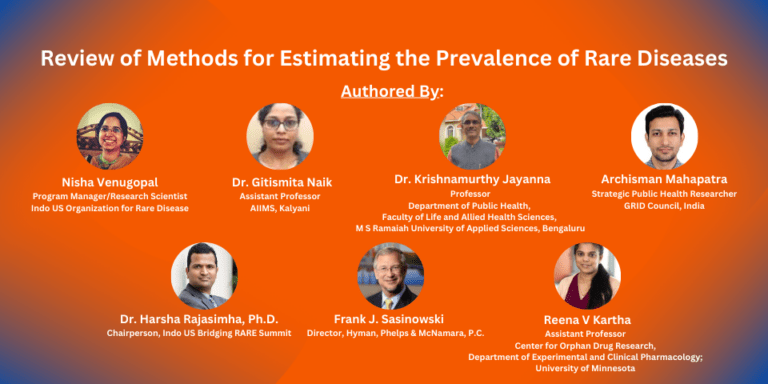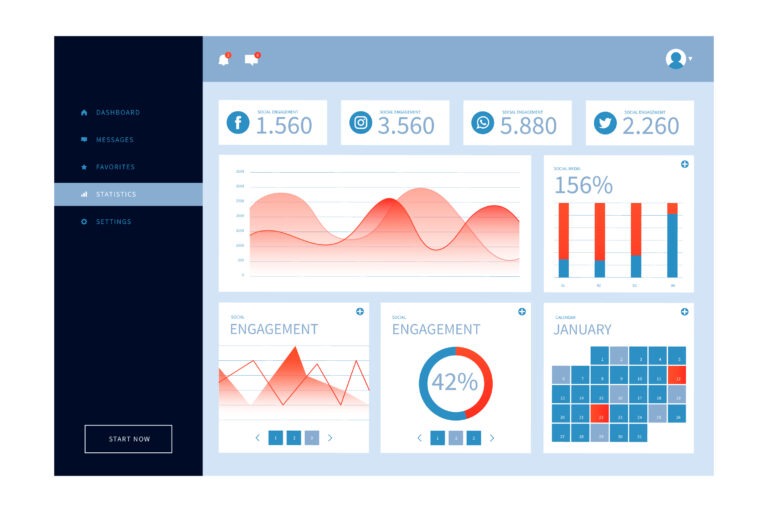
Review of Methods for Estimating the Prevalence of Rare Diseases
Source: Rare Disease and Orphan Drug Journal Abstract One of the main challenges in rare diseases is the unavailability of reliable estimates of prevalence and

Source: Rare Disease and Orphan Drug Journal Abstract One of the main challenges in rare diseases is the unavailability of reliable estimates of prevalence and

Source: PRWeb The cost of patients dropping out of clinical trials continues to be a major problem for the development of new drugs and treatments

Patients’ directly reported outcomes in certain rare and chronic diseases are considered reliable for understanding the disease’s natural history, palliative treatments that focus primarily on

Source: Healthcare Weekly Almost everything went online due to the COVID-19 pandemic, from remote collaboration with coworkers to ordering groceries and conducting online classes. But

Source: Pharmaceutical Outsourcing The outbreak of the COVID-19 pandemic seriously disrupted new drug testing, treatments, and in-person healthcare services; access to clinical trial sites was

Evidence linking interventions with health outcomes is vital for healthcare decision-making. Making sound choices about healthcare requires the best possible and quality evidence from clinical

Feb 3, 2021 By Harsha Rajasimha, Ph.D. & Sharlene Brown, Ph.D. Patient groups can optimize patient registries, cross-sectional studies, and/or longitudinal natural history studies to
| Cookie | Duration | Description |
|---|---|---|
| cookielawinfo-checkbox-analytics | 11 months | This cookie is set by GDPR Cookie Consent plugin. The cookie is used to store the user consent for the cookies in the category "Analytics". |
| cookielawinfo-checkbox-functional | 11 months | The cookie is set by GDPR cookie consent to record the user consent for the cookies in the category "Functional". |
| cookielawinfo-checkbox-necessary | 11 months | This cookie is set by GDPR Cookie Consent plugin. The cookies is used to store the user consent for the cookies in the category "Necessary". |
| cookielawinfo-checkbox-others | 11 months | This cookie is set by GDPR Cookie Consent plugin. The cookie is used to store the user consent for the cookies in the category "Other. |
| cookielawinfo-checkbox-performance | 11 months | This cookie is set by GDPR Cookie Consent plugin. The cookie is used to store the user consent for the cookies in the category "Performance". |
| viewed_cookie_policy | 11 months | The cookie is set by the GDPR Cookie Consent plugin and is used to store whether or not user has consented to the use of cookies. It does not store any personal data. |
Dr. Sweta Sneha is the Founder and Executive Director of Healthcare Management & Informatics and Professor of Information Systems & Security at Kennesaw State University. A globally recognized expert with a passion towards equity and diversity, Sneha is a strategic leader with two decades of experience in technology and informatics. She is a recipient of Distinguished Service Award, KSU Collaboration Award, NCWIT RISE-IT Award, and WIT Honoree, WIT Finalist (2018, 2019, 2020, 2021, 2022). Dr. Sneha has published over 100 peer-reviewed research; authored a book on revolutionizing healthcare; delivered panel sessions, workshops, and keynotes; in addition to serving on several boards. Dr. Sneha serves as editorial steward and university ambassador for Blockchain in Healthcare Today; editorial board for Health Systems Journal; co-chairs Health IT at AMCIS, and HICSS. Her leadership has led to enhancing KSU’s footprint on diversity and equity, STEAM education, and outreach. She has a PhD in Computer Information Systems from Georgia State University and a BS in Computer Science from University of Maryland. Prior to academia, she worked at PricewaterhouseCoopers in Management Consulting.